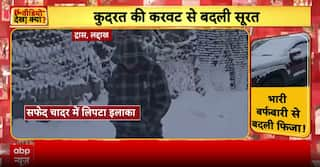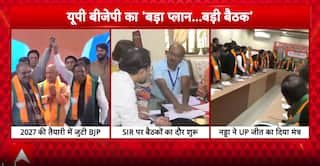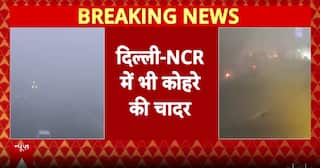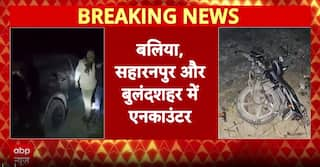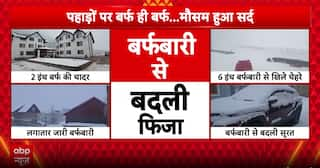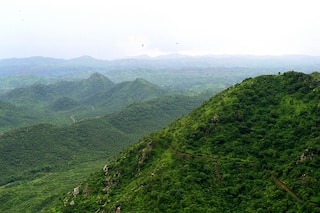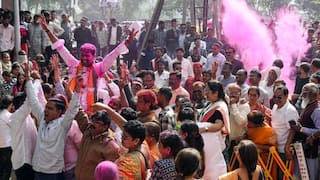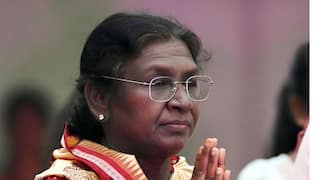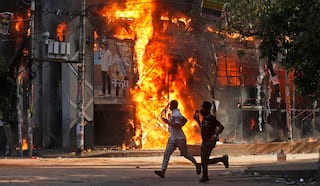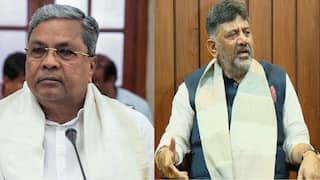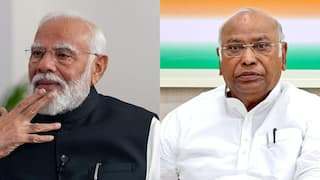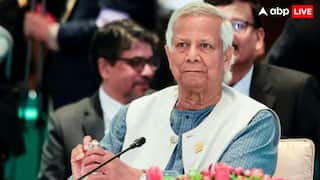‘Dark Days Of Emergency Can Never Be Forgotten’: PM Modi, HM Amit Shah On 46th Anniversary
In another tweet, Modi stated that the Emergency was how the Congress party "trampled over our democratic ethos". The Emergency, declared by then-Prime Minister Indira Gandhi for a 21-month period from 1975 to 1977, was one of the most contentious periods in India's post-independence history.

New Delhi: On the 46th anniversary of the Emergency, Union Home Minister Amit Shah attacked the Congress, claiming that it was imposed to silence people who spoke out against one family and describing it as a dark chapter in the history of independent India.
Shah took to Twitter and stated: “Emergency imposed to quell the voices against one family is a dark chapter in the history of independent India. Salute to the sacrifice of all the countrymen who fought relentlessly for the protection of the Constitution and democracy of the country while suffering the brutal tortures of the ruthless rule for 21 months.”
He went on to say that Congress, in its selfishness and arrogance of power, killed the world's largest democracy by declaring a state of emergency in the country.
PM Modi’s tweets 'dark days' can never be forgotten
On the 46th anniversary of the imposition of the Emergency by then-PM Indira Gandhi, Prime Minister Narendra Modi said in a series of tweets that the dark days between 1975 and 1977 had ended. He tweeted: "The #DarkDaysOfEmergency can never be forgotten. The period from 1975 to 1977 witnessed a systematic destruction of institutions. Let us pledge to do everything possible to strengthen India’s democratic spirit, and live up to the values enshrined in our Constitution".
In another tweet, Modi stated that the Emergency was how the Congress party "trampled over our democratic ethos", sharing a link to an Instagram post by the BJP. "This is how Congress trampled over our democratic ethos. We remember all those greats who resisted the Emergency and protected Indian democracy," he tweeted.
Salute to all the countrymen who fought tirelessly for the protection of the country's Constitution and democracy while suffering the brutal tortures of the ruthless rule for 21 months, he added.
ALSO READ | Delhi Govt Exaggerated Oxygen Requirement By Up To 4 Times Amid Covid Second Wave: SC Audit Committee
India declared emergency for a 21-month period
The Emergency, declared by then-Prime Minister Indira Gandhi for a 21-month period from 1975 to 1977, was one of the most contentious periods in India's post-independence history. The Emergency, declared by President Fakhruddin Ali Ahmed under Article 352 of the Constitution in response to an "internal disturbance," was in effect from June 25, 1975, until March 21, 1977.
The order gave Indira Gandhi unrestricted power to rule by decree, suspending elections and restricting civil liberties. During the Emergency, Indira Gandhi's political opponents were
imprisoned, and the press was censored.
Political opponents of Indira Gandhi imprisoned
Many leaders who opposed Gandhi's policies were imprisoned, including Jayaprakash Narayan, Raj Narain, Morarji Desai, Charan Singh, Atal Bihari Vajpayee, Lal Krishna Advani, Arun Jaitley, and others.
The Rashtriya Swayamsevak Sangh (RSS) and Jamaat-e-Islami were both outlawed.
Human rights violations occurred in India, including a mass forced sterilisation campaign orchestrated by Indira Gandhi's heir apparent, Sanjay Gandhi.
During this time, police had the authority to detain people without charge and without informing their families. Torture and abuse of detainees and political prisoners have been widely reported.
The Congress-led government was also accused of spreading government propaganda through public and private media outlets such as Doordarshan.










